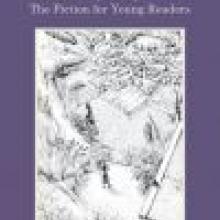
There are 13 in all, from the straightforward The World Around the Corner, written for younger children, to the three much more gritty titles for mid-to-late teenagers written in the '90s.
These latter books, like The Champion, are set in the real world, whereas the remainder of the books have magical or fantasy elements to them, often on a grand scale.
The Literary Companion, like all books with various contributors, includes essays that will appeal more to one reader than another.
Kathryn Walls' chapter, in which she uncovers links between Gee's writing and that of his mother's (mostly unpublished) work, rather oddly contradicts Gee's own statements about any connections.
Louise Clark's ''Writing horizontally and vertically'' clearly shows how Gee varies his style depending on the age group for whom he's writing.
Hale notes there are overlaps in the essays: contributors were encouraged to compare the same works from different perspectives.
The approach has many positive outcomes, but also means the same statements are quoted in more than one place, and synopses of some stories are given more than once.
The end result, however, is that we become familiar with the books in considerable detail.
In his children's stories Gee tends to set adventure and narrative over exploration of character.
However, he still creates well-rounded human beings and allows us to discover for ourselves whether the heroes are truly heroic and the villains completely villainous.
His leading characters, for the most part, grow through their adventures, suffer loss, and have to deal with faults in their own personalities.
Even his uglier characters have their sympathetic moments.
And some of his ugly characters are very ugly, and some parts of his stories are very dark.
Gee doesn't write in a didactic style; nevertheless he underpins his stories with ethical and moral issues, and a sense of concern for the environment.
These factors are shown again and again in the essays in Hale's book.
The volume is the first of two focusing on Gee's writing.
The second, which will deal with the 17 adult novels and a number of short stories, will be edited by Lawrence Jones.
• Mike Crowl is a Dunedin writer, musician and composer.











